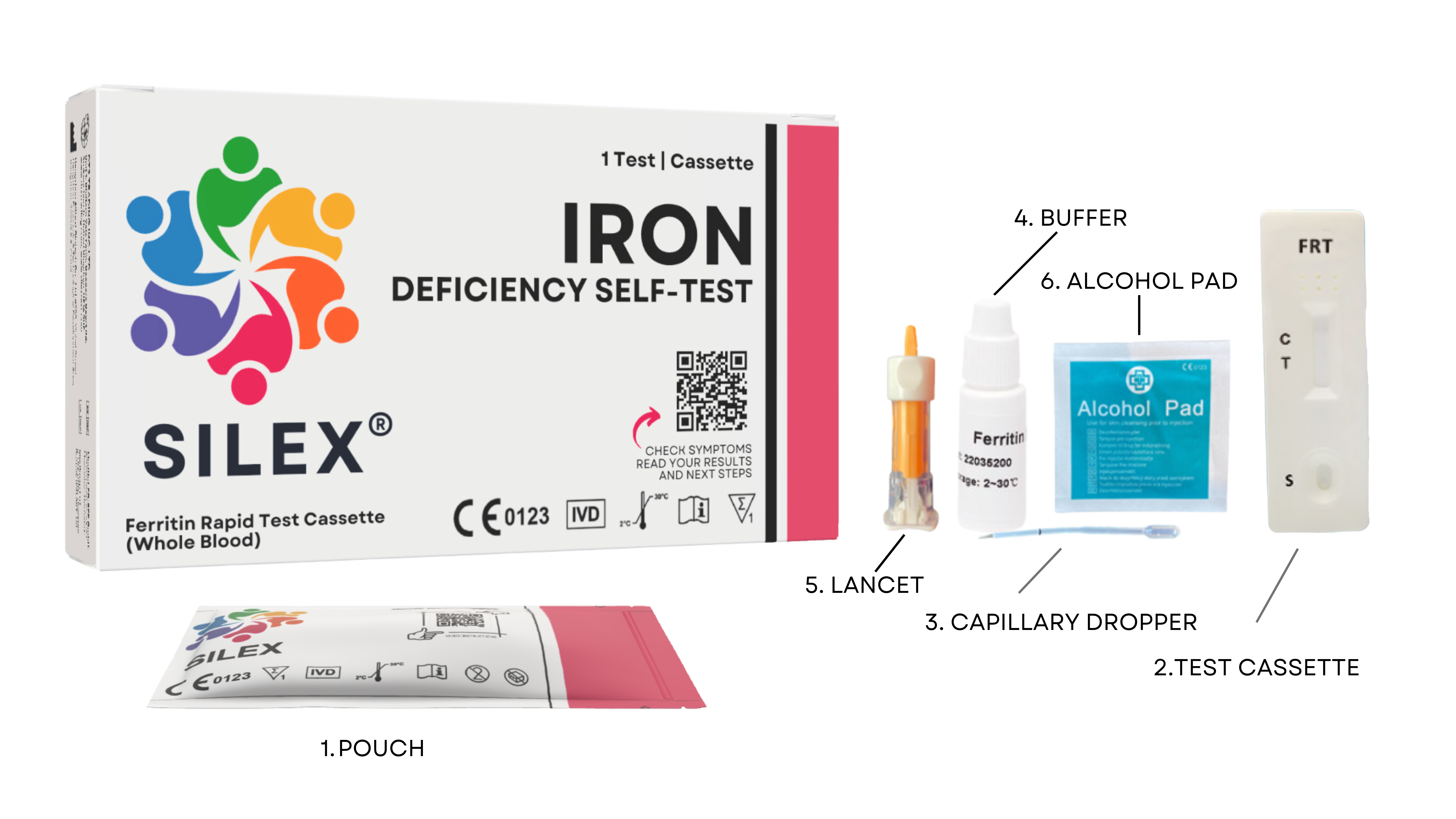Test Overview
Symptoms
Iron is used to make haemoglobin which is found in red blood cells.
Haemoglobin is important for carrying oxygen around the body. If you
don't have enough haemoglobin then your body is not going to get the
oxygen it requires to function at its best. This low level of
haemoglobin/red blood cells is called anaemia.
Iron is also important for the healthy growth of hair, skin and nails.
If you are iron deficient, then you can experience a wide variety of symptoms. These include:
- Tiredness
- Becoming fatigued quickly during exercise.
- Looking pale
- Memory problems
- Brittle hair and nails
- Poor concentration
- Getting out of breath quicker than normal
- Slow wound healing







FAQs
Iron is also important for the healthy growth of hair, skin and nails.
If you are iron deficient, then you can experience a wide variety of symptoms. These include:
- Tiredness
- Becoming fatigued quickly during exercise.
- Looking pale
- Memory problems
- Brittle hair and nails
- Poor concentration
- Getting out of breath quicker than normal
- Slow wound healing.
If your iron deficiency goes untreated, then it can lead to other problems within your body, such as heart problems, liver problems and the ability to fight infections.
- Take Iron Supplements: these are available over the counter or as part of a prescription.
- Improve your diet: foods rich in iron include: Liver (do not eat during pregnancy), red meat, beans (such as red kidney beans, and chickpeas), nuts, and dried fruits.
- See your GP: if your iron deficiency/insufficiency is due to a disease, then you need to treat the disease.
If the cause is easily identified and treated, then further tests are not usually necessary, however if your doctor can’t find the cause, then you might need to go for further tests, such as scan or camera tests of your bowel.














